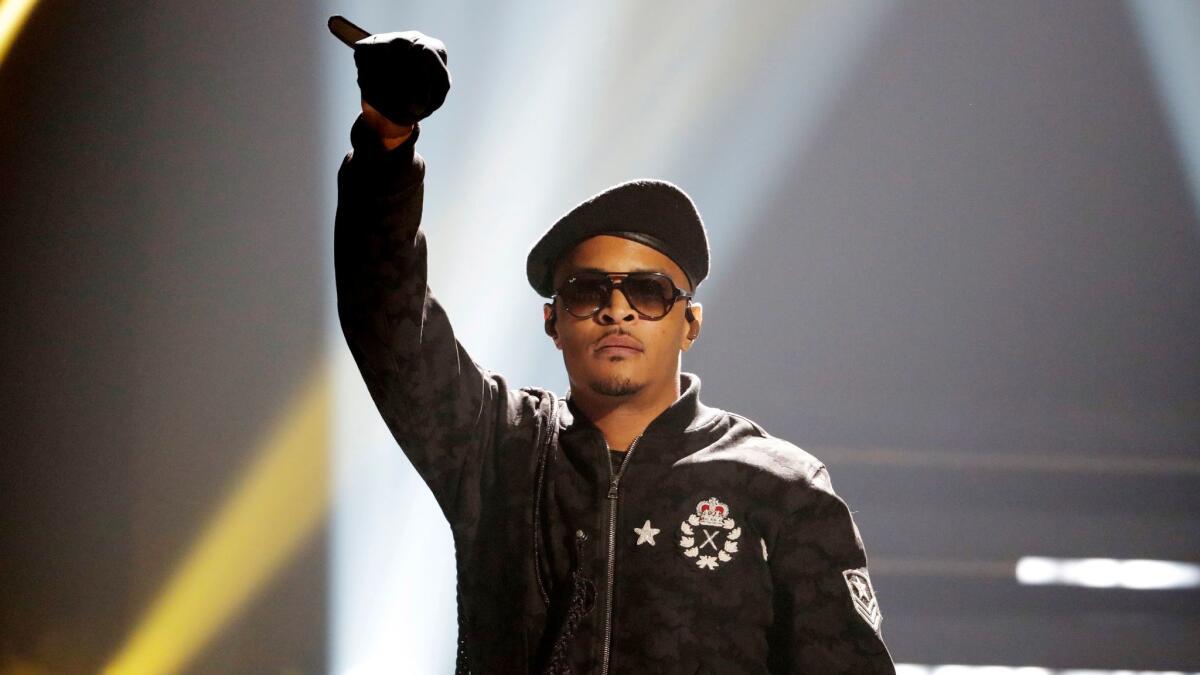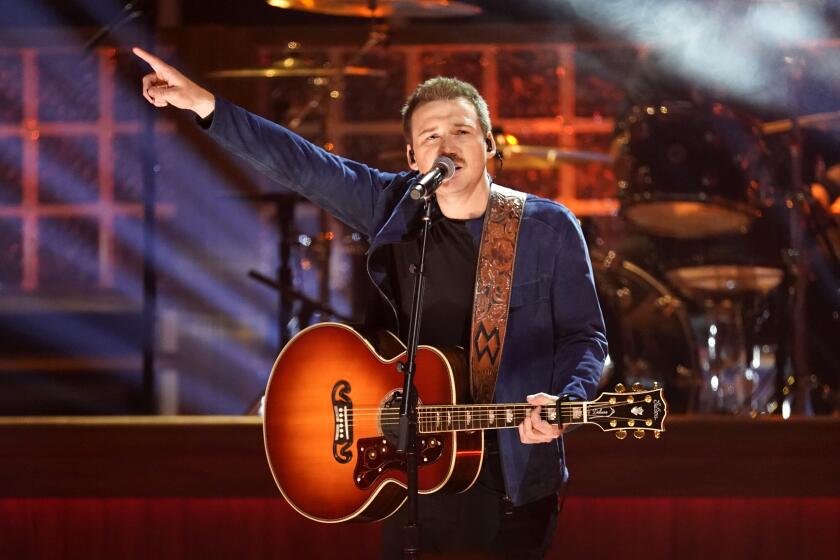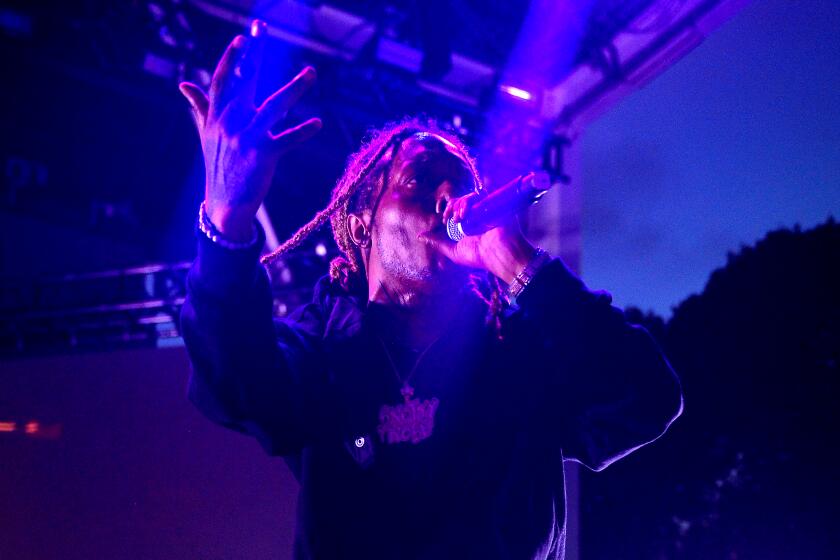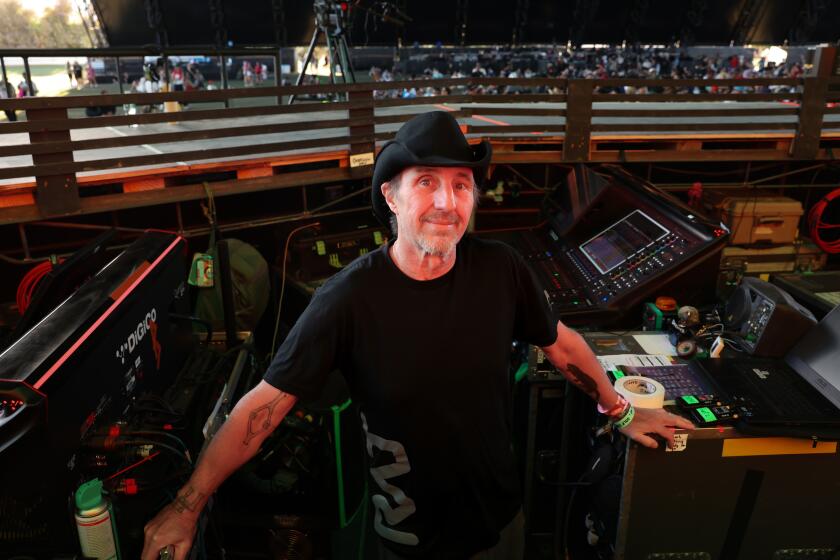How the deaths of Philando Castile and Alton Sterling moved rapper T.I. to action

T.I. is known for his hits like “Big Things Poppin” and “Whatever You Like” that keep the party going. Born Clifford Harris Jr., the 36-year-old rapper has also found success in film and reality television over his 16-year career.
But after 2016’s string of fatal police shootings, T.I. seized the socially conscious movement, speaking out against the injustices he sees against the black community.
Last December, the rapper released “Us or Else: Letter to the System,” a politically charged album dedicated to issues such as police brutality and the Black Lives Matter movement. And on Monday, BET will premiere his short film, which takes a not-so-subtle look at what happens to a community in the face of tragedy.
The Times spoke with T.I. about this new phase of his career.
Tell me about the inspiration for your short film.
The film in itself was for supporting the project that we put out entitled “Us or Else.” The thing that inspired the EP was the string of shootings that happened last summer with the exclamation points being Philando Castile and Alton Sterling.
Something struck a chord and said to me, you’ve got to do something. You have to create some sort of dialogue to try and push forward or institute some progression. I thought about people like Harry Belafonte or Minister [Louis] Farrakhan or Quincy Jones or John Lewis.
Do you think that artists have a responsibility to speak out against injustice?
I can’t say that I feel that artists are obligated or that they have a responsibility. But I will say if you do feel something organically inside of you sincerely, that says this isn’t right … then I think they should step out and do so, if they are educated and sincere and passionate about creating some change. But if they are not, if it does not come from a sincere place, if they are not passionate about it, then they should not speak upon it.
Hip-hop’s roots are in fighting oppression. Does the hip-hop community have a greater responsibility to use their platform for justice?
I think that hip-hop was born in the heart of the underserved community and it spoke to the plight of the people that lived in this underserved community. Because it was born from that and derived from that, I think the source of it should always be being a voice for the voiceless or providing inspiration, even if it’s something lighthearted and entertaining, to take your mind off the things that go on.
We always have been sort of the hood reporters, if you will, to tell people who may not get a chance to go to the community or may not have quite as vivid of an understanding of what goes on in the community. I think that should never change.
This is me doing what I can, paying my respects to the need in the community.
— T.I.
How do your own experiences compare with some of the issues addressed in the short film.
The things that have happened to me paled in comparison to the things that [happened] to people like Philando Castile, Alton Sterling, Trayvon Martin, Eric Garner.
I’m a black man that came through the ghetto that had to make his way up the ranks. It’s unconventional for a person like me to make it to where I am so of course I’ve experienced it. But the things I’ve experienced, they didn’t cost me my life.
Do you see yourself doing more in the social justice realm?
I dedicate this part of my career to the “Us or Else” movement and I feel that the short film is there to create dialogue. After “Us or Else,” I’m going to get back to a more conventional T.I. album. I didn’t expect a lot of commercial success. But it’s something that will live forever.
This is me doing what I can, paying my respects to the need in the community.
More to Read
The biggest entertainment stories
Get our big stories about Hollywood, film, television, music, arts, culture and more right in your inbox as soon as they publish.
You may occasionally receive promotional content from the Los Angeles Times.







